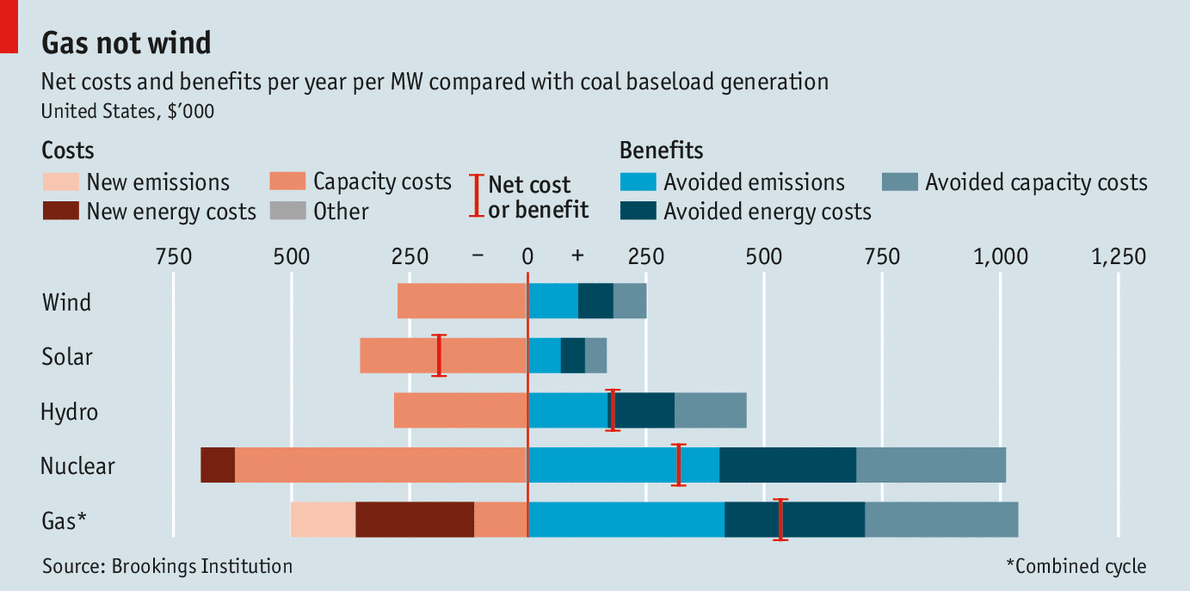
Wall Street has been aggressively cheer-leading the solar industry over the past couple of years. An example, Canadian Solar Inc (NASDAQ:CSIQ), has climbed 10x in value since 2012.
Backing up the hype, solar panels are half the cost they were in 2008, and capital costs for solar-power plants have fallen by 22% in 2010-2013, according to an Economist article discussing the costs of renewable energy.
“In a few sunny places, solar power is providing electricity to the grid as cheaply as conventional coal- or gas-fired power plants,” the article says.
However Charles Frank of the Brookings Institution, a think-tank, created a cost-benefit analysis to rank various forms of energy.
“The costs include those of building and running power plants, and those associated with particular technologies, such as balancing the electricity system when wind or solar plants go offline or disposing of spent nuclear-fuel rods. The benefits of renewable energy include the value of the fuel that would have been used if coal- or gas-fired plants had produced the same amount of electricity and the amount of carbon-dioxide emissions that they avoid. The table summarises these costs and benefits. It makes wind and solar power look far more expensive than they appear on the basis of levelised costs.”
“Solar power is by far the most expensive way of reducing carbon emissions. Wind is the next most expensive. Hydropower provides a modest net benefit. But the most cost-effective zero-emission technology is nuclear power.”
The irony of some government policy is not lost on the Economist magazine.
“At the moment, most rich countries and China subsidise solar and wind power to help stem climate change. Yet this is the most expensive way of reducing greenhouse-gas emissions. Meanwhile Germany and Japan, among others, are mothballing nuclear plants, which (in terms of carbon abatement) are cheaper.”